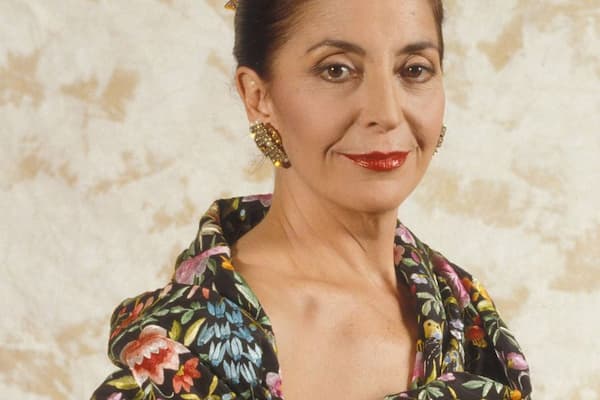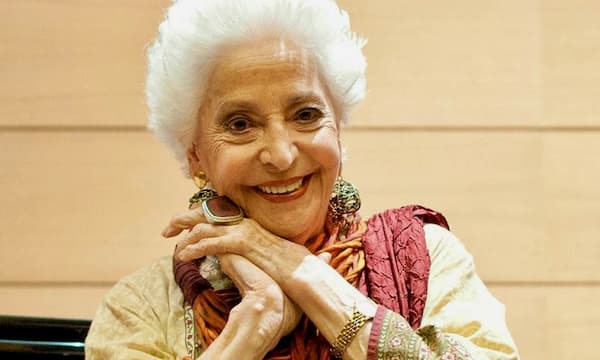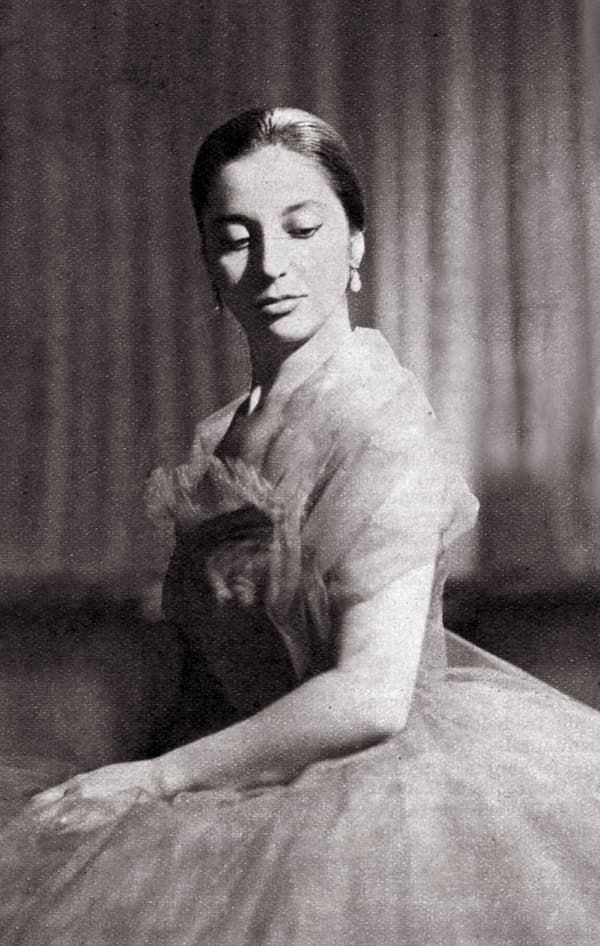The Spanish mezzo-soprano Teresa Berganza has captivated opera houses and concert halls around the world. One of the towering figures in the realm of classical music, Berganza’s career spans over half a century, earning her acclaim for her exquisite vocal technique, dramatic intensity, and an unparalleled ability to breathe life into the works of great composers.

Teresa Berganza
Blending elegance and passion, she redefined the mezzo-soprano repertoire, and in her signature roles she showcases not only her vocal agility but also her gift for embodying complex characters with authenticity and grace. Berganza’s legacy endures through her recordings, her teaching, and the inspiration she offered to generation of singers. To celebrate her birthday on 16 March, let us sample some of her most iconic recordings and performances.
Teresa Berganza Sings “Farewell Gorgeous Spanish Rose”
Rossini “Una voce poco fa”
Teresa Berganza’s performances as “Rosina” in Rossini’s Barber of Seville stand among the most celebrated interpretations of the role. Her renditions, both live and recorded, blend her technical mastery, vocal agility, and charismatic stage presence.
Universally praised for her technical prowess, her pinpoint coloratura and silken legato had the ability to make Rossini’s music sound effortless. A critic writes, Berganza’s Rosina is the perfect marriage of voice and drama, “she sings Rossini as if she invented him.”
Berganza’s voice was light yet substantial, with a natural ease that made the most demanding passages sound effortless. And High Fidelity magazine writes, “This is the Rosina to end all Rosinas, vivid, vocally flawless, and utterly engaging.”
Teresa Berganza Sings Rossini’s Il barbiere di Siviglia, “Una voce poco fa”
Mozart “Voi che sapete”

Teresa Berganza’s performances as “Cherubino” in Mozart’s The Marriage of Figaro are among her most iconic contributions to the operatic canon. Her portrayal of the lovestruck, impetuous pageboy showcased her crystalline mezzo-soprano voice, impeccable Mozartian style, and a natural flair for embodying youthful exuberance.
As a critic wrote, “Teresa Berganza’s Cherubino is a triumph. Her voice is exquisite, her diction flawless, and her acting utterly convincing. She owns the stage.” To be sure, her phrasing was impeccable, and every note shaped with care. Never forced, it aligned with Mozart’s demand for precision and grace, and by avoiding over-ornamentation, Berganza let the purity of her voice shine.
Critics consistently praised Berganza’s Cherubino for its vocal beauty and dramatic authenticity, describing her performance as “a breathless rush of sound and emotion.” To be sure, Berganza avoided turning the role into a caricature, presenting a believable, heartfelt Cherubino rather than a comic stereotype.
Teresa Berganza Sings Mozart’s Le Nozze di Figaro, “Voi che sapete”
Rossini La Cenerentola

Teresa Berganza
Teresa Berganza’s performances as “Angelina” in Rossini’s La Cenerentola are widely regarded as exceptional, showcasing her extraordinary vocal gifts, interpretive depth, and pivotal role in the Rossini renaissance. Her renditions stand out for their technical brilliance, emotional resonance, and a unique ability to elevate the character beyond the fairy-tale archetype.
One of the most vocally challenging operas, particularly for the mezzo-soprano lead, requires rapid-fire coloratura, seamless legato, and a wide range, all delivered by Berganza with astonishing ease. Her voice was described as “silken yet agile,” as she handled the intricate runs and trills without strain, maintaining clarity and warmth throughout.
Berganza sang it in its original mezzo key, thus preserving Rossini’s intended timbre. This choice highlighted her rich middle register and gave the role a grounded and earthy quality that contrasted with the opera’s lighter comedic elements. Berganza’s Angelina was more than just a passive heroine. She infused the character with dignity, resilience, and subtle wit, transforming this happy-go-lucky story into a journey of inner strength.
Gioachino Rossini: La Cenerentola (Laura Zannini, soprano; Teresa Berganza, mezzo-soprano; Ugo Trama, bass; Margarita Guglielmi, soprano; Paolo Montarsolo, bass; Luigi Alva, tenor; Renato Capecchi, baritone; Scottish Opera Chorus; London Symphony Orchestra; Claudio Abbado, cond.)
Bizet Carmen

Teresa Berganza, 1957
Teresa Berganza’s interpretation of the title role in Bizet’s Carmen stands as one of her most distinctive and celebrated achievements, offering a nuanced, bel canto-infused take on the iconic gypsy that diverged from the heavier, more dramatic portrayals of her predecessors. Her performances and recordings, marked by vocal finesse, seductive charm, and a lighter, more restrained approach, earned both acclaim and debate, cementing her as a unique Carmen in the operatic pantheon.
Unlike the dramatic mezzos who dominated the role with powerhouse voices, Berganza leaned on her bel canto roots. Her Carmen was agile, precise and lyrically focused, emphasising Bizet’s melodic lines over theatrical bombast. And as a Spaniard, she brought an innate feel for Carmen’s cultural milieu with her diction and rhythmic flair in the Spanish-inflected passages gaining a sense of authenticity.
Berganza portrayed Carmen as a proud, independent woman, not a manipulative siren. Her refusal to overplay the seductress, opting for dignity over vulgarity, gave the character a modern, feminist edge that still resonates with listeners. It is widely regarded as one of her signature achievements.
Teresa Berganza’s mastery resides in her ability to fuse technical brilliance with profound emotional depth, transforming roles like Rosina, Cherubino, Angelina, and Carmen into timeless expressions of artistry. Her legacy endures as a testament to a voice that danced through the most demanding scores with elegance, leaving an indelible mark on opera’s golden repertoire.
For more of the best in classical music, sign up for our E-Newsletter
